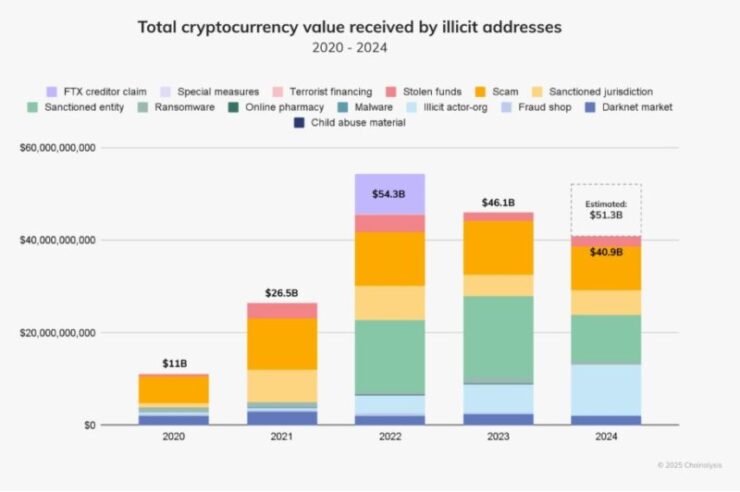A California resident has been sentenced to 87 months in federal prison for using Bitcoin to launder proceeds from dark web MDMA sales. John Khuu, 29, of San Francisco, orchestrated an operation that imported MDMA from Germany and sold it across multiple dark web marketplaces, accepting Bitcoin as payment.
According to authorities, Khuu converted Bitcoin proceeds into U.S. dollars, using a complex laundering network that involved hundreds of transactions across multiple financial accounts to conceal the origins of the funds.
Investigators revealed that Khuu’s transactions were designed to avoid detection, utilizing unlicensed money-transmitting services and potentially cryptocurrency mixing tools to obscure the movement of funds.
However, blockchain forensic analysis ultimately helped authorities trace the transactions back to him, leading to his conviction.
Beyond money laundering charges, Khuu has also been indicted in the Northern District of California for the unlawful importation of a Schedule I controlled substance.
His conviction follows a broader crackdown on dark web drug trafficking and the use of cryptocurrencies in illicit financial activities.

Federal Crackdown on Crypto-Fueled Money Laundering
John Khuu’s arrest was part of Operation Crypto Runner, a multi-year federal investigation led by the Department of Justice (DOJ), U.S. Secret Service (USSS), and the Postal Inspection Service (PIS). Launched in November 2022, the initiative targets individuals using cryptocurrencies to launder illicit funds from scams and underground markets.
Since its inception, Operation Crypto Runner has led to the arrests of at least 21 individuals involved in various financial crimes, including real estate fraud, email scams, and romance scams—all of which relied on crypto transactions to obscure the flow of illicit funds.
The crackdown has continued into 2025, with authorities securing new convictions. Just last month, a Montana man was convicted for crypto money laundering, marking another high-profile win for law enforcement in its ongoing battle against digital financial crimes.
Federal agencies are ramping up forensic blockchain analysis and leveraging cross-agency partnerships to trace, seize, and dismantle criminal networks operating through crypto transactions.
U.S. Cracks Down on Crypto Money Laundering
The U.S. government is ramping up efforts to combat cryptocurrency-based money laundering, as new data reveals a surge in illicit transactions. Blockchain analytics firm Chainalysis estimates that over $40 billion was laundered through cryptocurrencies in 2024, surpassing previous records set in 2023.

While traditional money laundering methods—such as cash smuggling and shell companies—still dominate, the use of cryptocurrencies to launder drug money and proceeds from cybercrime is rising rapidly. The 2024 U.S. Treasury risk assessment highlighted that criminals are adopting more sophisticated blockchain techniques, making it harder for authorities to track illicit funds.
One of the key challenges in quantifying crypto money laundering is that many drug operations and other crimes originate “off-chain,” meaning that illicit funds often enter the crypto ecosystem after being moved through cash-based transactions or underground networks. Despite these challenges, law enforcement agencies have stepped up blockchain forensic capabilities, improving their ability to trace and seize illicit funds tied to dark web markets, fraud schemes, and cybercriminal enterprises.
The rising trend in crypto money laundering has led to tighter global regulations and increased scrutiny of digital asset exchanges, with authorities targeting unregistered crypto mixers, privacy coins, and cross-border laundering networks.
Quick Facts:
- John Khuu, 29, was sentenced to 87 months in federal prison for laundering proceeds from dark web MDMA sales using Bitcoin.
- Khuu imported MDMA from Germany and sold it through dark web marketplaces, converting Bitcoin payments into U.S. dollars through a complex laundering network.
- Authorities used blockchain forensic analysis to trace hundreds of transactions, leading to his conviction.
- Khuu faces additional charges in Northern California for the unlawful importation of a Schedule I controlled substance.





